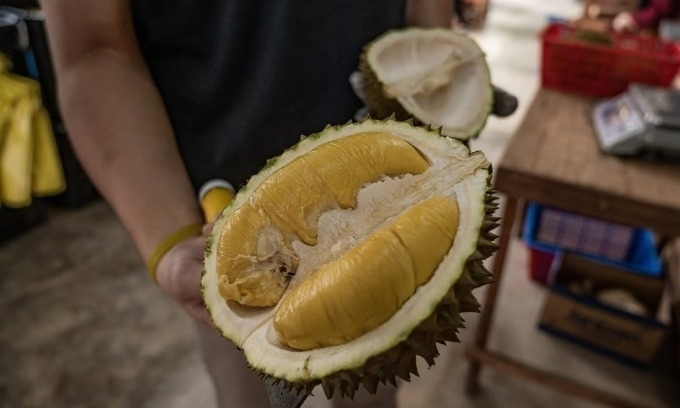Edition: International | Vietnamese
© Copyright 1997 VnExpress.net. All rights reserved.

Datuk Seri Mohamad Sabu, Malaysia’s Agriculture and Food Security Minister, said last Friday that the renewal affirmed that Musang King durian is a registered special brand belonging to Malaysia, making it difficult for other countries to use it, as reported by Malaysian state news agency Bernama.
The brand was first registered on March 13, 2014 as an intellectual property (IP) under Geographical Indication, a designation used for products whose qualities or reputation are specifically tied to their area of production.
This grants those with rights to the indication the ability to prevent its use by third parties whose products do not meet the applicable standards, according to the World Intellectual Property Organization, an agency of the United Nations aimed at promoting and protecting IP.
Mark Teng, a lawyer with expertise in IP protection and commercialization, told to The Straits Times that the renewal preserves the integrity of the Musang King name and protects Malaysian farmers by preventing non-Malaysian durian variants from being sold as Musang King.
The IP protection is meant to acknowledge the reputation and exceptional quality of the unique Malaysian durian, which has gained global popularity
Mohamad noted that durians in the country have transformed from a fruit grown for family enjoyment into a profitable income source, now that Malaysia is allowed to ship fresh durians to China.
That permission came under a phytosanitary protocol signed in June and the first batch of fresh durian from Malaysia arrived in China on Aug. 24.
Mohamad said in a Facebook post at the end of August that he saw imported Malaysian Musang King durians sell out quickly at a premium rate of RM350 (US$83) per fruit during his visit to Joy Ming Mau, a fresh durian packaging and distribution warehouse company in Shenzen, China.
He said in another post that Malaysia’s durian exports can reach RM1.8 billion by 2030, the target set by its agriculture ministry.
The country exported RM1.19 billion worth of durian to China last year.